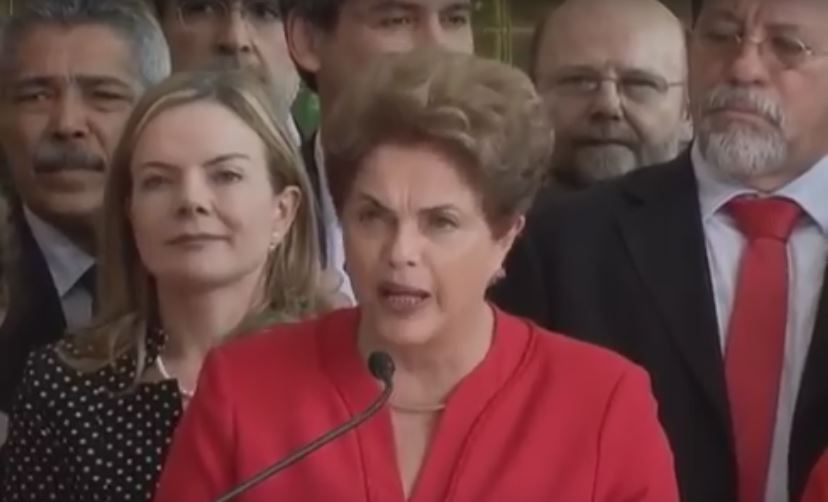
Cuba issues statement on Dilma Rousseff’s ouster
HAVANA — A “soft coup,” as radical changes to the right are called nowadays, has just been staged in Brazil with the ouster of elected President Dilma Rousseff. In past years, we have had instances of such soft coups (Honduras and Paraguay).
Because of its strategic importance in the region, the case of Brazil had been gestated within the imperial political project for hegemonic reconquest of the region, as part of the global drive for the same objectives. About this subject, several of our journalists have written here for a long time now.
What’s curious in the Brazilian instance is that the Senate can remove her but not disqualify her in the immediate future, that is, the elections that will be held in 2018. Afterward, yes. If hers had really been a serious and punishable offense, the disqualification could have been for life. Could it be that the high percentage of senators accused of corruption were covering their own backs?
What has just happened is worrisome because coups can be soft at first but, as they generate changes in the steering of the helm that are contrary to the interests and needs of the great majorities, they generate unforeseen situations that could change the initial softness.
Among the lessons to be learned there is an essential one for the popular movements and parties once they reach power democratically, as was this case: it is not enough to distribute the wealth, they must change the forms of the democratic exercise that comes with power.
The official text of the Cuban government, as translated into English by the Cuban Foreign Ministry, can be accessed by clicking here.


